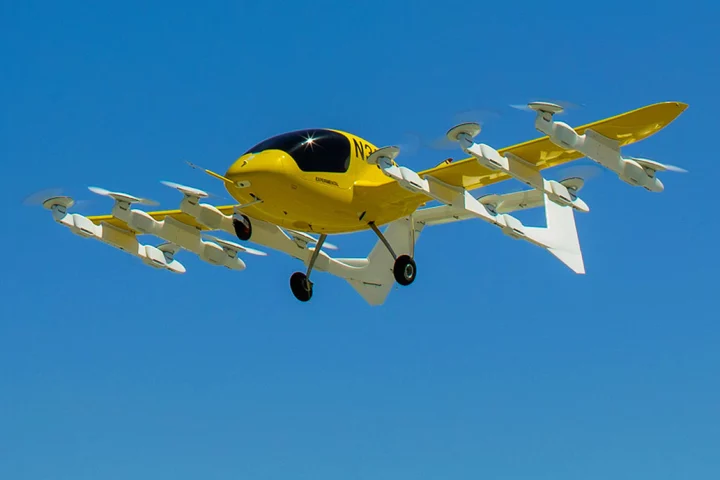Wisk
Autonomous eVTOL air taxi company spun off from Kitty Hawk and now part-owned by Boeing. Based between the United States and New Zealand, where aviation codes could allow commercial eVTOL air taxi services to operate earlier than elsewhere in the world.
-
Boeing subsidiary Wisk Aero's Generation 6 eVTOL aircraft has completed its historic maiden flight. On December 16, 2025 at 12:26 pm PST, the autonomous passenger carrier lifted off from the Wisk flight test facility at Hollister, California.
-
Wisk Aero has bumped up the passenger-carrying capacity of its upcoming air taxi from two to four, and none of those will be a pilot. The company intends to take its 6th-gen autonomous eVTOL to market, and will now be seeking FAA type certification.
-
Hundreds of eVTOL companies are jostling for position as next-gen flying taxis approach their prime-time debut – but which of these futuristic aircraft will really take off? Sergio Cecutta talks us through his "Advanced Air Mobility Reality Index."
-
Skullduggery and shenanigans are afoot in the emerging eVTOL market, as long-established player Wisk accuses cashed-up newcomer Archer of pilfering its air taxi design, along with some key employees. Lawsuits and criminal investigations are underway.
-
A Palo Alto startup has popped up out of stealth mode to lay another eVTOL air taxi design on the growing pile. Archer proposes a transitioning, winged, battery-powered aircraft, and its team includes senior talent from Vahana, Wisk and Joby Aviation.
-
After months in lockdown, Wisk has announced it's back in the air, continuing flight testing of its autonomous two-seat Cora eVTOL aircraft at locations in New Zealand and the United States, as it prepares for certification and commercial flights.
-
With the backing of aviation giant Boeing and a pilotless 13-rotor transitioning VTOL airframe from Kitty Hawk, Wisk Aero is preparing to launch an autonomous air taxi service trial on the South island of New Zealand, complete with actual passengers.






